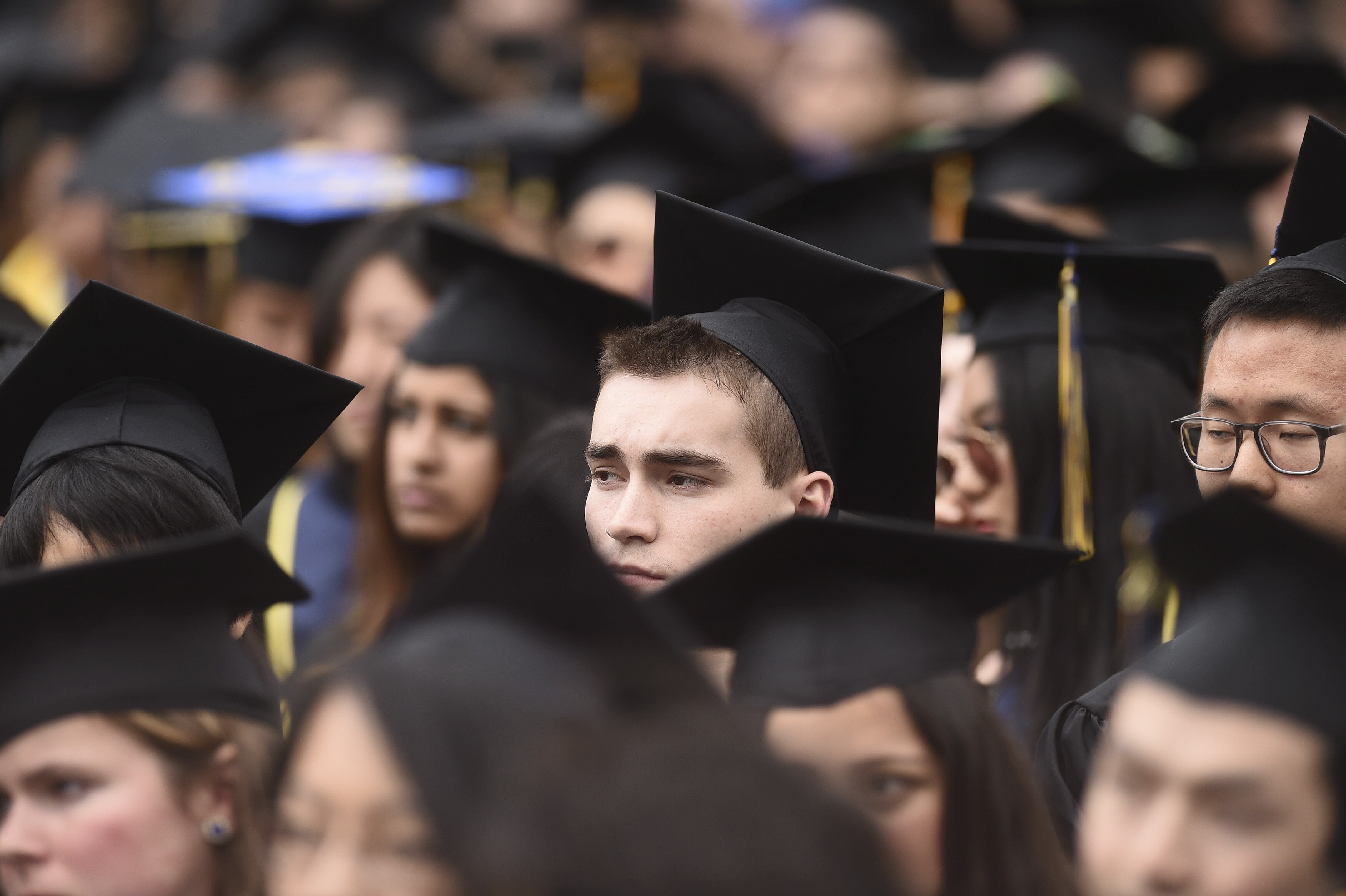World's leading universities for interdisciplinary science revealed for the first time – the results may surprise you

The next-generation of ground-breaking scientific discoveries are most likely to come from 'interdisciplinary' science teams.
Image: Getty Images/iStockphoto
Stay up to date:
Artificial Intelligence
- The next-generation of ground-breaking scientific discoveries are most likely to come through the work of new 'interdisciplinary' science teams.
- By combining expertise from fields like AI, healthcare, logistics, finance and science, we can take on the world's most pressing challenges.
- The newly-launched global Interdisciplinary Science Ranking recognizes the top universities doing scientific research in pioneering new ways.
Earlier this year, the National University of Singapore (NUS) launched an Artificial Intelligence Institute with a bold and ambitious aim “to expand the frontiers of what is possible”.
Its director, Mohan Kankanhalli, said that the idea behind the new institute was to break down traditional academic disciplinary silos, to “bring together faculty members from across the university with a diversity of experience and expertise to conduct fundamental research with a common purpose”.
It is generally understood that the next generation of ground-breaking, world-changing scientific discoveries are most likely to come by combining a wide range of academic expertise through new, “interdisciplinary” science teams, and NUS’s AI Institute has been specifically designed to enable this.
How is the World Economic Forum creating guardrails for Artificial Intelligence?
It brings together computer scientists and artificial intelligence (AI) technology experts alongside experts from fields that span healthcare, logistics, manufacturing, robotics, finance, urban sustainability and science, as well as the humanities and the social sciences – all in the hope of pushing back the boundaries of human knowledge to take-on some of the world’s most pressing challenges, from the climate crisis to pandemic prevention.
“At NUS, we have long prioritized and nurtured interdisciplinary research programmes that address globally relevant issues through holistic, multifaceted approaches, and with diverse perspectives and expertise,” said Liu Bin, Deputy President (Research and Technology) at the university.
Universities recognized in new Interdisciplinary Science Ranking
And now, this visionary strategy helped earn NUS a top position in a new and pioneering global Interdisciplinary Science Ranking – an entirely new way to recognize, benchmark and incentivize those universities doing most to cross disciplinary boundaries and conduct scientific research in pioneering new ways.
Developed in a partnership between Times Higher Education (THE), the data partner to universities and governments worldwide, and Schmidt Science Fellows, an initiative of Eric and Wendy Schmidt’s Schmidt Sciences philanthropic foundation which supports interdisciplinary researchers through research fellowships, the new rankings shows an exciting, diverse variety of good practice across the world – with plenty of surprises.
In the inaugural ranking, the Massachusetts Institute of Technology takes first place, followed by its US West coast rival, Stanford University in second and the US dominates the top, with seven of the top 10.
But Singapore shines too, with NUS taking third place, and its city-state neighbour, Nanyang Technological University, taking 9th place. Europe also takes a world top-10 place, with the Netherlands Wageningen University and Research in 7th place.

The unique ranking measures university performance in three areas:
- Inputs, looking at the funding and support for interdisciplinary science on the campus
- Process, examining things like the facilities provided and the administrative support for cross-cutting research, including career development opportunities and promotion
- Outputs, focusing on research publications, research quality and academic reputation for interdisciplinary research.
Rankings champion best in interdisciplinary research and science
The drive to create the new ranking was born out of frustration. As a former university faculty member and an assistant dean, Megan Kenna, now executive director of Schmidt Science Fellows, was all too aware of the deep structural barriers in universities that hinder interdisciplinary research.
These include that universities tend to be historically structured into narrow departments often physically separated on campuses in their own buildings and with their own distinct research practices, cultures and recruitment processes. The research prizes, grants and publications which drive career development in academia also remain deeply channelled into narrow silos.
But Kenna recognized the potential of rankings to catch attention, and help shift perceptions, attitudes and behaviours, so set up a collaboration with THE, the creator of the 20-year-old World University Rankings, to develop new metrics and a new global league table, to better understand and benchmark – and also to better recognize and champion – best practice in interdisciplinary science.
The response from the university sector worldwide has been remarkable. The Interdisciplinary Science Ranking is THE’s biggest ever debut international ranking, with 749 universities ranked from 92 different countries included in what is a voluntary assessment process. The world top 100 has great diversity with representation from six continents.
The Middle East’s top ranked university is Saudi Arabia’s King Fahd University of Petroleum and Minerals in 17th. Oceania is led by RMIT university in Melbourne in 22nd place, followed in 23rd by University of Newcastle in Australia too. Africa’s top institution is Egypt’s Cairo University in 39th place, and Latin America’s pioneer of interdisciplinarity is Mexico’s National Autonomous University of Mexico, in 54th place.
Despite the great global diversity on display, concentrations of excellence have emerged in Hong Kong, which boasts four universities in the world top 30, led by the University of Hong Kong in 13th and in Shanghai, with Fudan University taking 16th place and Shanghai Jiao Tong University taking 24th as well as in Singapore.
California has also been revealed as a global interdisciplinary powerhouse, with Caltech in LA and University of California Santa Barbara joining Stanford in the top 10.
For Thomas Rosenbaum, president of Caltech, the institute’s success in “advancing discovery and defining new fields of intellectual inquiry depends on its ability to harness the power of interdisciplinary collaboration”.
The institute is famously, and deliberately small, encouraging its faculty to pool expertise and collaborate across disciplines. Graduate students can choose to work in any laboratory at Caltech, mixing skills and perspectives.
Accept our marketing cookies to access this content.
These cookies are currently disabled in your browser.
Its philanthropic donors tend to allow flexible funding to provide foundations for cross-cutting work. Even the design of the campus, with “meandering paths” leading to “unexpected explorations and serendipitous encounters” help, says Rosenbaum.
“The individuals who join our community value the freedom to follow their imagination while relying on colleagues to interrogate new ideas with rigorous debate,” he adds.
And as Eric Schmidt, co-founder of Schmidt Sciences, says: “To answer the world’s toughest questions – whether it’s scaling fusion energy or advancing quantum computing – we need to think differently.
"The Interdisciplinary Science Ranking recognizes universities that are advancing the practice of science for the next century and beyond through new institutions, emerging technologies, and effective teaching.”
Don't miss any update on this topic
Create a free account and access your personalized content collection with our latest publications and analyses.
License and Republishing
World Economic Forum articles may be republished in accordance with the Creative Commons Attribution-NonCommercial-NoDerivatives 4.0 International Public License, and in accordance with our Terms of Use.
The views expressed in this article are those of the author alone and not the World Economic Forum.
Forum Stories newsletter
Bringing you weekly curated insights and analysis on the global issues that matter.
More on Education and SkillsSee all
Shankar Keshav Prasad
September 15, 2025
Emilian Axinia
September 11, 2025
Alexander Shevchenko
September 4, 2025
Corinne Brenner and Mandë Holford
September 4, 2025
Bolor-Erdene Battsengel and Grace Marr
September 4, 2025






